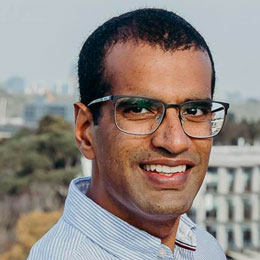This section provides information about Gynaecological Cancer care
This includes its risk factors, symptoms, how it is diagnosed and the different types of gynaecological cancer treatments available.
About gynaecological cancers
Gynaecological cancer is any cancer that starts in a woman’s reproductive organs.
Gynaecological cancers begin in different places within a woman’s pelvis, which is the area below the stomach and in between the hip bones, namely the fallopian tubes, ovaries, uterus, cervix, vagina, and vulva.
Gynaecological cancers are named for the part of the body where the cancer starts.
Types of gynaecological cancer
Cervical cancer begins in the cervix, which is the lower, narrow end of the uterus. (The uterus is also called the womb.)
Ovarian cancer begins in the ovaries, which are located on each side of the uterus.
Uterine cancer begins in the uterus, the pear-shaped organ in a woman’s pelvis where the baby grows when she is pregnant.
Vaginal cancer begins in the vagina, which is the hollow, tube-like channel between the bottom of the uterus and the outside of the body.
Vulvar cancer begins in the vulva, the outer part of the female genital organs.
Gynaecological cancer symptoms and diagnosis
There is no way to know for sure if you will get a gynaecological cancer. That’s why it is important to pay attention to your body and know what is normal for you, so you can recognize the warning signs or symptoms of gynaecological cancer.
If you have vaginal bleeding that is unusual for you, talk to a doctor right away. Any vaginal bleeding after menopause needs to be reported to your doctor. If you have not yet gone through menopause but notice that your periods are heavier, last longer than normal for you, or if you’re having unusual bleeding between periods, talk to your doctor.
You should also see a doctor if you have any other warning signs that last for two weeks or longer and are not normal for you. Symptoms may be caused by something other than cancer, but the only way to know is to see a doctor.
Signs and symptoms are not the same for everyone, and each gynecologic cancer (cervical, ovarian, uterine, vaginal, and vulvar cancers) has its own signs and symptoms.
Gynaecological cancer treatments
Gynaecological cancers may be treated with surgery, chemotherapy, and radiation.
If your doctor says that you have a gynaecological cancer, ask to be referred to a gynaecological oncologist—a doctor who has been trained to treat cancers of a woman’s reproductive system. This doctor will work with you to create a treatment plan.
Types of Treatment
Gynaecological cancers are treated in several ways. It depends on the kind of cancer and how far it has spread. Treatments include surgery, chemotherapy, and radiation. Women with a gynecologic cancer often get more than one kind of treatment.
- Surgery: Doctors remove cancer tissue in an operation.
- Chemotherapy: Using special medicines to shrink or kill the cancer. The drugs can be pills you take or medicines given in your veins, or sometimes both.
- Radiation: Using high-energy rays (similar to X-rays) to kill the cancer.
Different treatments may be provided by different doctors on your medical team.
Gynecologic oncologists are doctors who are trained to treat cancers of a woman’s reproductive system.
Gynaecological Cancer
Medical Team
Specialising in Gynaecological Cancer Treatments
Consultant Oncologist

Dr Simon David Pledge
Consultant Oncologist
BMChir, MA(Oxon), MRCP, FRCR
Personal Profile
Dr Simon Pledge is a consultant oncologist working in the NHS out of Western Park Cancer hospital and can be seen privately through Sheffield Oncology at BMI Thornbury.
Professional Memberships
- Royal College of Radiologists
- British Gynaecological Cancer Society
- UK Children’s Cancer and Leukaemia Group
Clinical Interests
- Colorectal and gynaecological oncology
- Paediatric radiotherapy
Consultant Clinical Oncologist
Get in touch
Request an appointment with one of our specialists:
Call us
0114 4381 412




